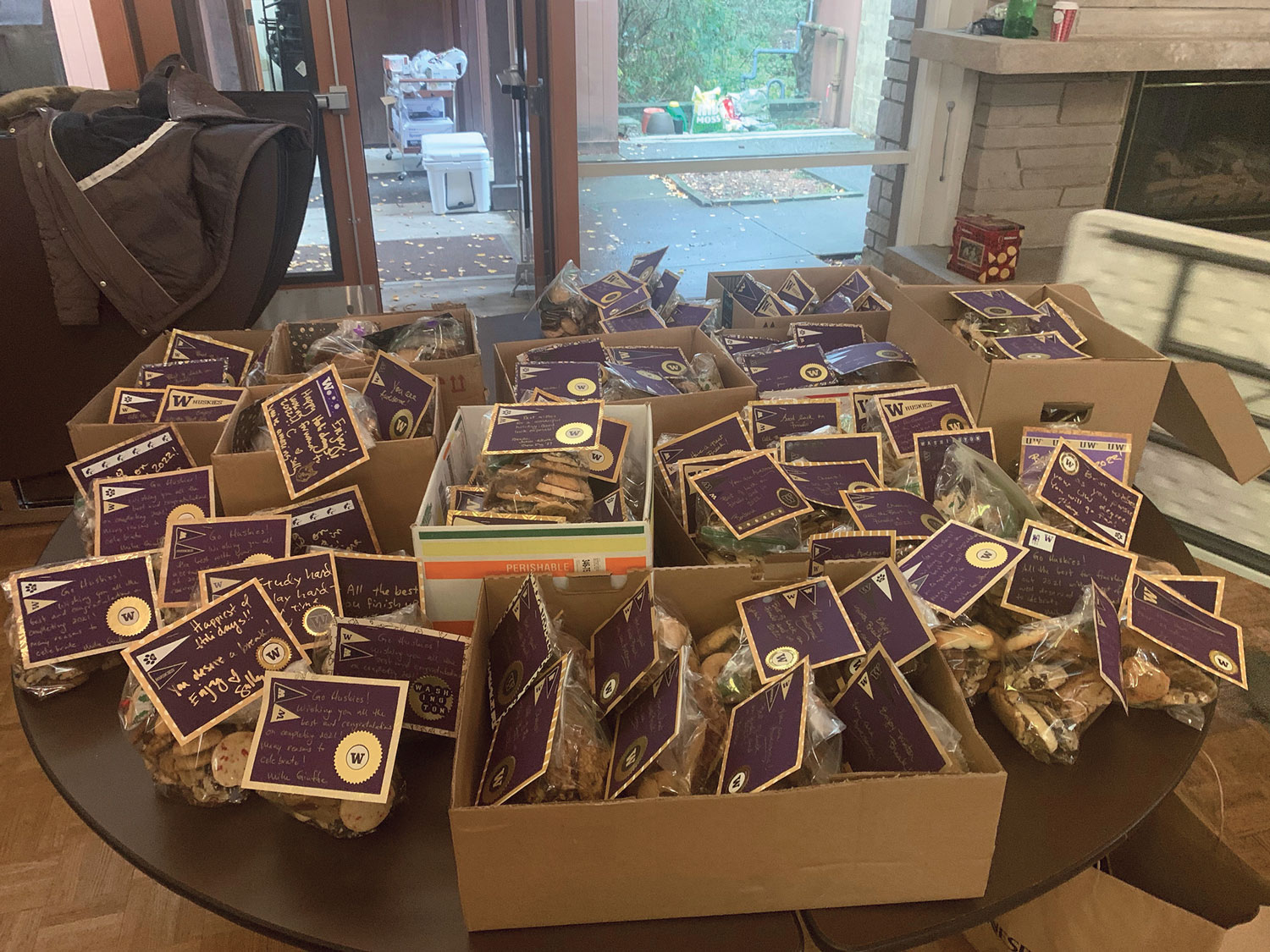The UW Champions Program supports former foster youth

The UW Champions Program was established in 2011 to serve foster care youth and alumni at the UW. It has since expanded to include students who experienced unaccompanied homelessness as youth.
Barbara Lord MacLean, ’80, got her first close look at the UW’s Champions Program, for students who come from foster homes, as a member of the Friends of the Equal Opportunity Program Board of Directors. It changed the direction of her philanthropic life, especially around the holidays.
“They had speakers from the Champions Program, these two young women that were both physics majors, and they came from a background of foster care,” MacLean says. “Their story was, just oh, my God, it just broke your heart and blew your mind how well they had done given their circumstances. After that, I was really, like, ‘Let’s do something!’”
The Champions Program, which operates out of the Office of Minority Affairs & Diversity, exists to ensure academic success among its nearly 100 students who were in the foster care system or experienced homelessness and to prepare them for life after graduation. The students can access academic mentoring, and help finding housing, clothing and school supplies.
Now the FEOP board president, MacLean makes sure the Champions are in the thoughts of the board members—and her extended circle of friends—during holiday breaks, when the students need it most. In December, the FEOP and the University District Rotary Club teamed up to provide care packages during exams and to stock a pantry to provide food security while the campus is on break.
Exam week and the holidays are difficult under any circumstances, let alone during a pandemic. While most students have a family or guardians to help them through tough times, many Champions participants, who leave the foster care system at age 18, don’t have the same resources. The hope, says the Rotary’s Jeff Werthan, was “just to make finals week a little bit easier and less stressful.”
The resource drive matched the goals of the Rotary’s Diversity, Equity and Inclusion and Peacebuilder committees. After meeting with UW administrators to figure out what was needed most, Rotary members went on a holiday shopping spree. “And all four of us wound up going shopping at Costco to purchase mostly food,” Werthan says, “but also hygiene products.” Rotary hopes to continue to work with OMA&D on projects, Werthan says.
Engagement can become addictive—just like the treats Mac-Lean now makes for the students each year with the help of a growing team of bakers. The former Boeing manager called upon family and friends who like to bake. This year they made nearly two dozen cookies for each Champion participant. “And they loved them,” she says. “It doesn’t seem like much, because it’s just cookies, but they were so excited. We had 19 bakers, including me and my sister. Thirteen of us were retired from Boeing. The others were friends I grew up with. And everybody was so enthusiastic. So on both sides it seems like a huge success, right? It’s just a morale booster.”
If you want to learn more about the Champions Program or make a gift through your estate, contact Daya Terry at wmnterry@uw.edu, or call (206) 616-2491.